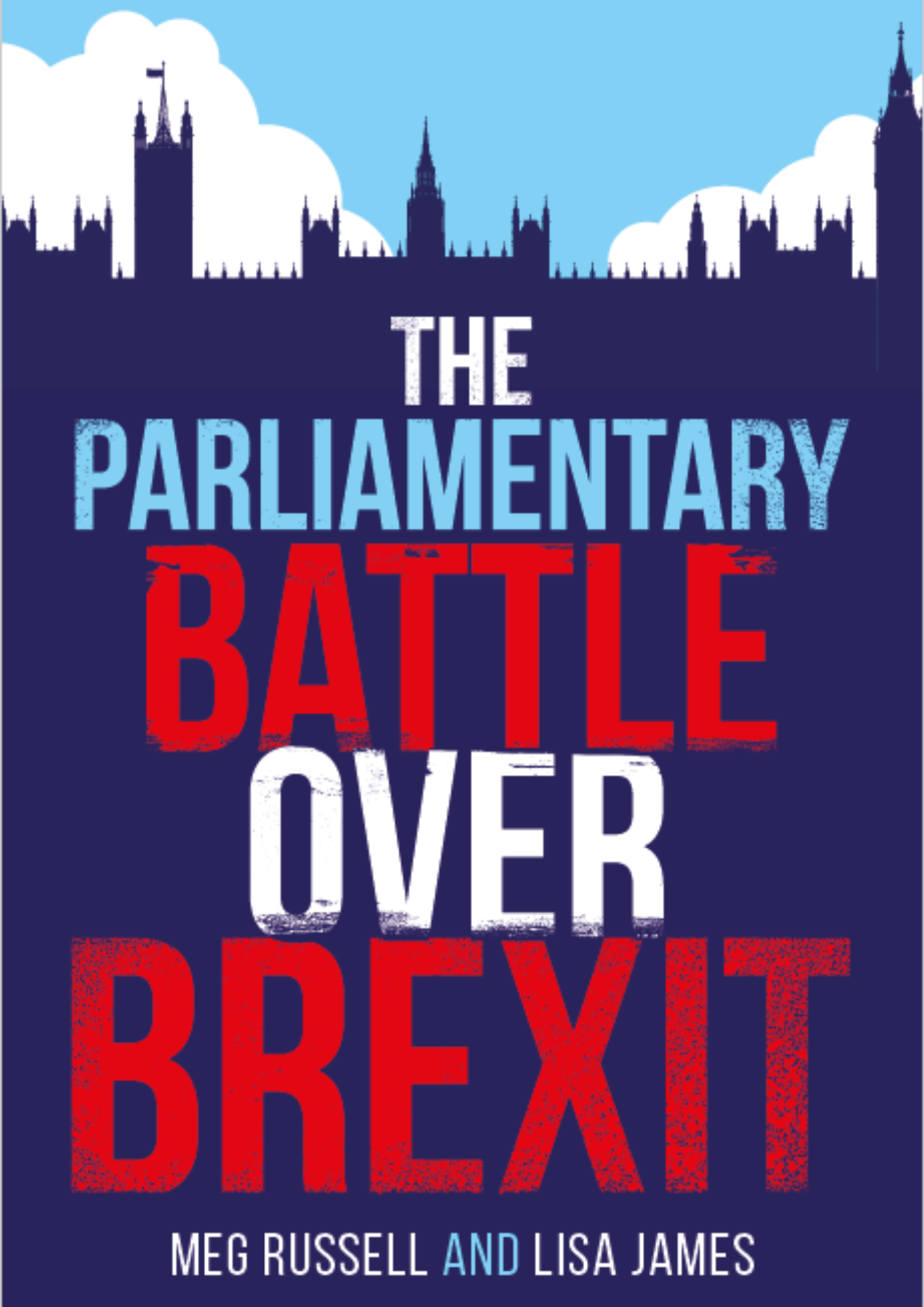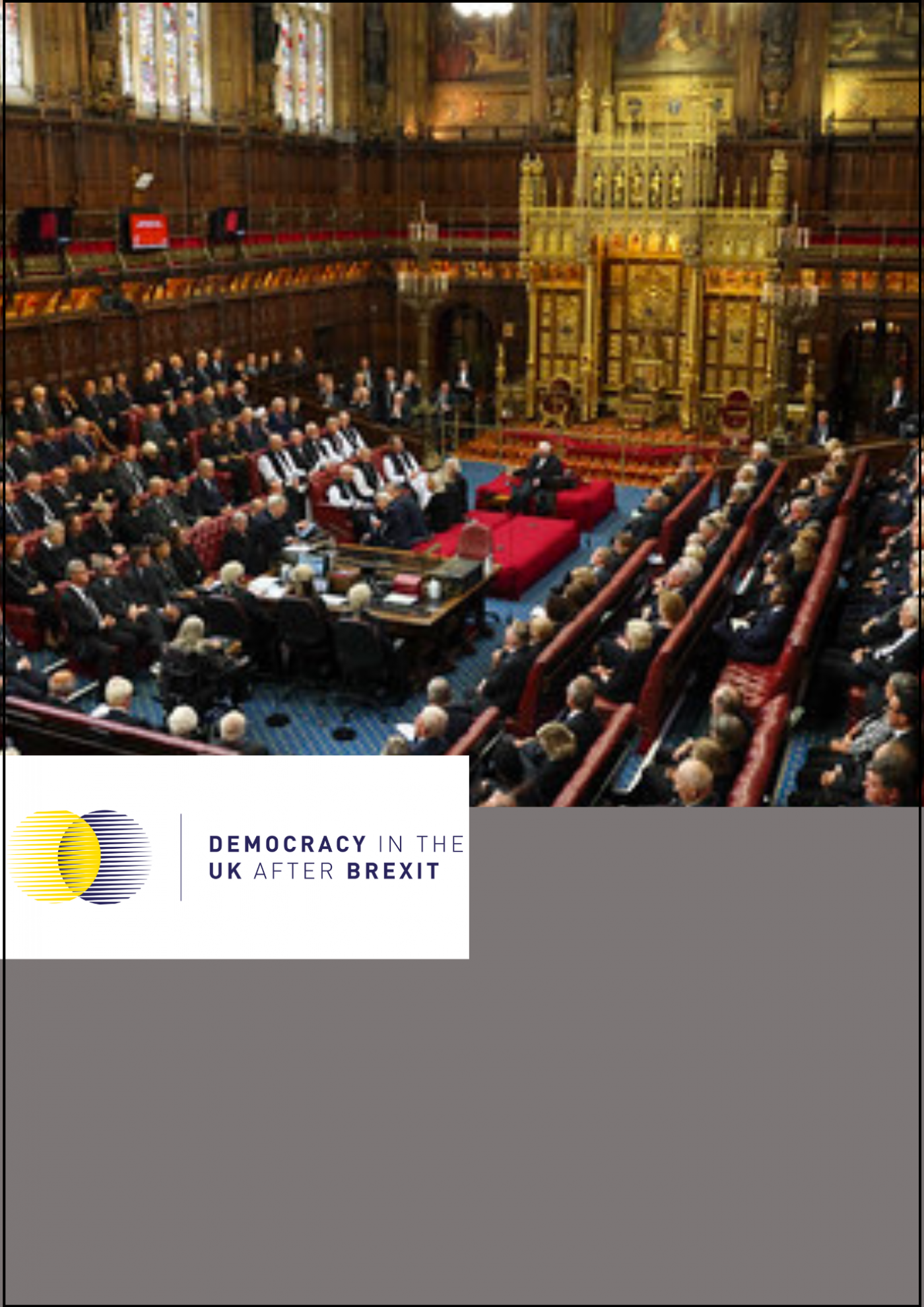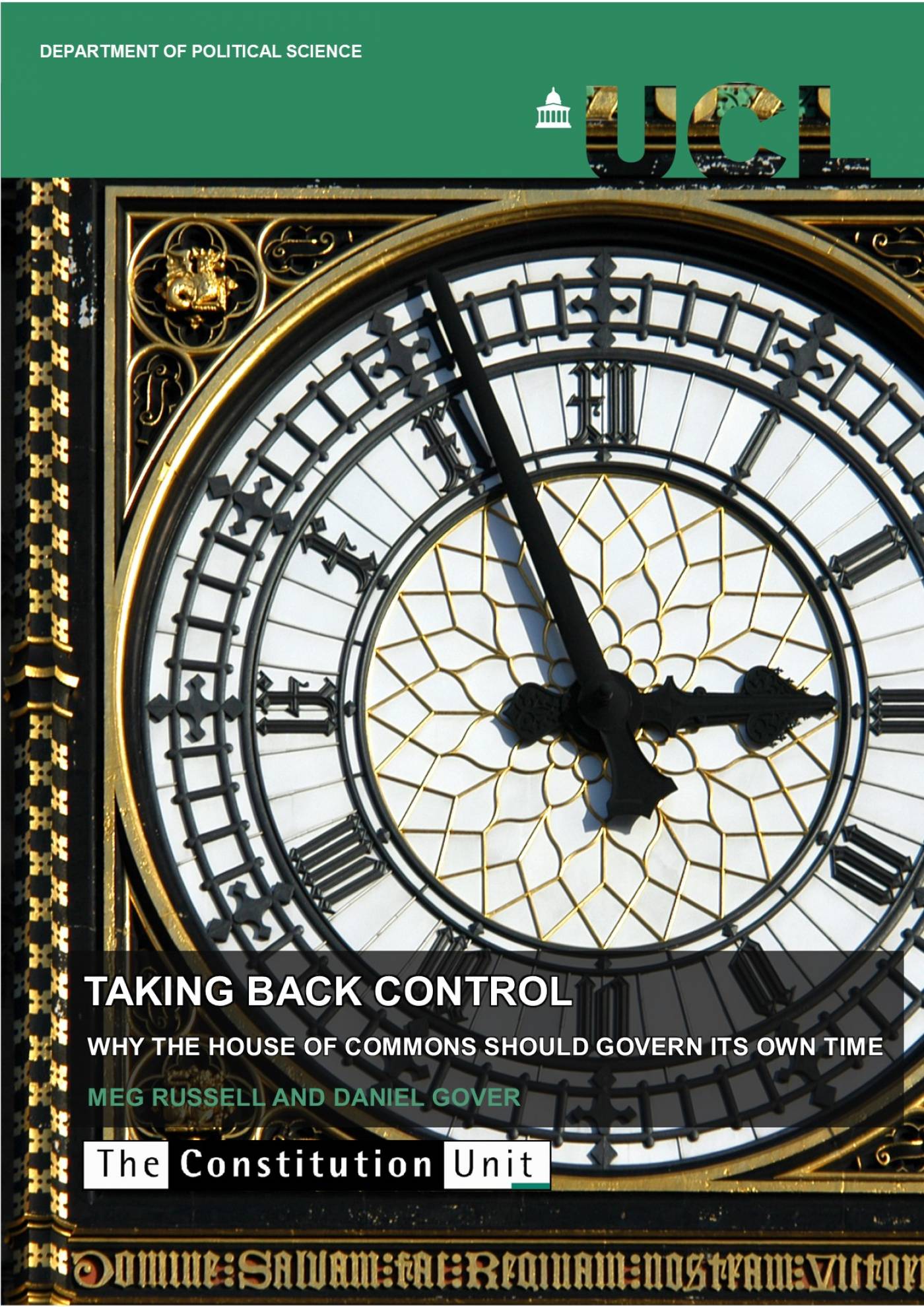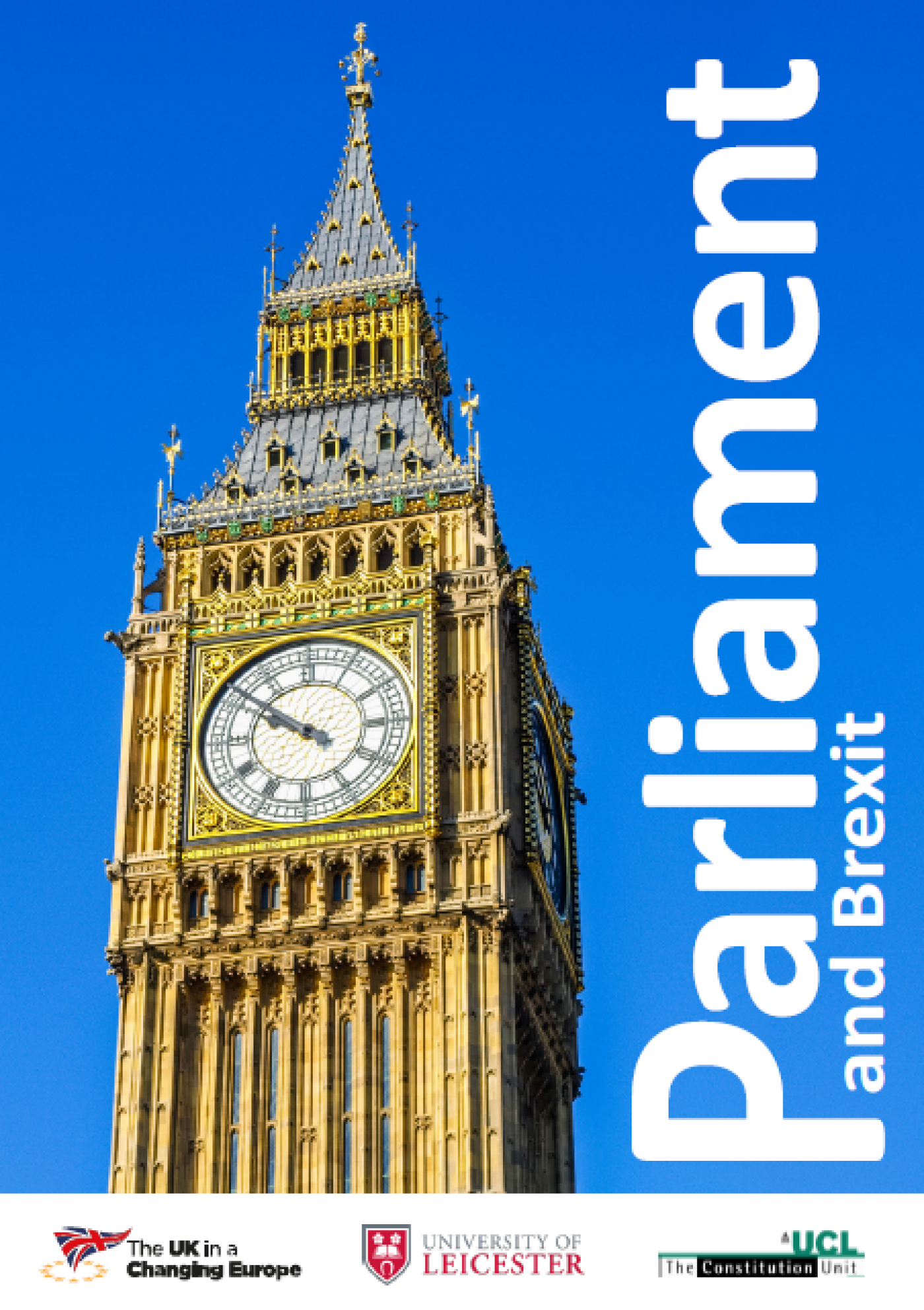A major research project on the legislative process which considers the impact of parliament on legislation before and after coalition government, resulting in the publication of a book.
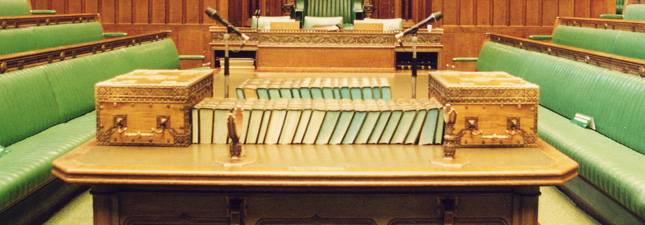
Buy Legislation at Westminster: Parliamentary Actors and Influence in the Making of British Law
Conventional wisdom holds that the British parliament is a relatively non-influential, and perhaps even peripheral, institution with respect to policy. The House of Commons in particular is widely criticised, being described in the media as 'a legislature on its knees' or 'an elaborate rubber-stamp'. It might be expected that such widespread criticism would be based on clear and incontrovertible evidence. But in fact there is remarkably little evidence, and remarkably little study, on parliament's policy influence. Our research assesses whether this picture is accurate by taking a closer look at the passage of bills through the Commons and the Lords.
The project involves detailed tracking of all amendments to 12 case study bills in the 2005 and 2010 parliaments including identifying 'policy strands': amendments at different legislative stages which concentrate on the same issue. This allows us to track influence between party groups and between chambers. This analysis, collectively covering thousands of amendments, enables us to quantify the visible influence of different actors in the process, and connections between them.
This detailed amendment analysis is complemented by interviews with key actors involved in each bill, drawn from both chambers, from government and outside groups. Interviews are used to verify conclusions from the quantitative analysis, and to collect evidence of less visible behind-the-scenes influence and relationships. This includes the power of 'anticipated reactions', in terms of government tailoring its policy in order to avoid parliamentary dissent.
The project resulted in the publication of Legislation at Westminster: Parliamentary Actors and Influence in the Making of British Law by Meg Russell and Daniel Gover.
- Outputs
Book
- Russell, M. & Gover, D. (2017) Legislation at Westminster: Parliamentary Actors and Influence in the Making of British Law, Oxford University Press.
Event
- Watch the November 2017 seminar discussing the book.
Journal papers
- Russell, M. Gover, D. & Wollter, K. 'Does the executive dominate the Westminster legislative process?: Six reasons for doubt' Parliamentary Affairs
- Russell, M. Gover, D., Wollter, K. & Benton, M. 'Actors, Motivations and Outcomes in the Legislative Process: Policy Influence at Westminster' Government and Opposition
- Russell, M. & Cowley, P. 'The Policy Power of the Westminster Parliament: the 'parliamentary state' and the empirical evidence' Governance
Conference papers
- Russell, M. & Gover, D. (2014) 'Parliamentary Influence Beneath the Radar: Westminster Select Committees and the Legislative Process', 11th Workshop of Parliamentary Scholars and Parliamentarians, Wroxton College, Oxfordshire, 26-27 July 2014.
- Russell, M., Gover, D. & Wollter, K. (2013) 'An Elaborate Rubber Stamp?: Reassessing executive dominance of the Westminster legislative process', Political Studies Association annual conference, Cardiff, 25-27 March 2013.
- Russell, M., Benton, M., Gover, D. & Wollter, K. (2012) 'Measurable Difference: Assessing the Westminster Parliament's Impact on Government Legislation, 2005-2010', European Consortium of Political Research parliaments and legislatures conference, Dublin, 24-27 June 2012.
- Russell, M., Benton, M., Gover, D. & Wollter, K. (2012) '"A Parliament That Bows and Scrapes"?: The Westminster parliament's impact on government legislation 2005-2010', Political Studies Association annual conference, Belfast, 3-5 April 2012.
Please refer to the Policy Impact of Parliament webpage for articles produced prior to the start of this project.
- Case study bills
For this project we studied 12 case study bills: seven from the 2005-10 parliament, and five from the first session of the 2010-15 parliament.
The bills from 2005-10 are:
- Identity Cards Bill 2005-06
- Health Bill 2005-06
- Corporate Manslaughter and Corporate Homicide Bill 2006-07
- Further Education and Training Bill 2006-07
- Employment Bill 2007-08
- Saving Gateway Accounts Bill 2008-09
- Energy Bill 2009-10
The bills from 2010-12 are:
- Identity Documents Bill
- Savings Accounts and Health in Pregnancy Grant Bill
- Budget Responsibility and National Audit Bill
- Public Bodies Bill
- Welfare Reform Bill
- Blog posts
- Legislation at Westminster – and how parliament matters more than many people think, Meg Russell & Daniel Gover, 23rd August 2017
- Legislation at Westminster launch seminar: senior parliamentary figures discuss the impact of parliament on government bills, Hannah Dowling & Kelly Shuttleworth, 24th November 2017
- Parliament and legislation: Perhaps Westminster is more powerful than you think? Meg Russell & Daniel Gover, 15th September 2015
 Close
Close



